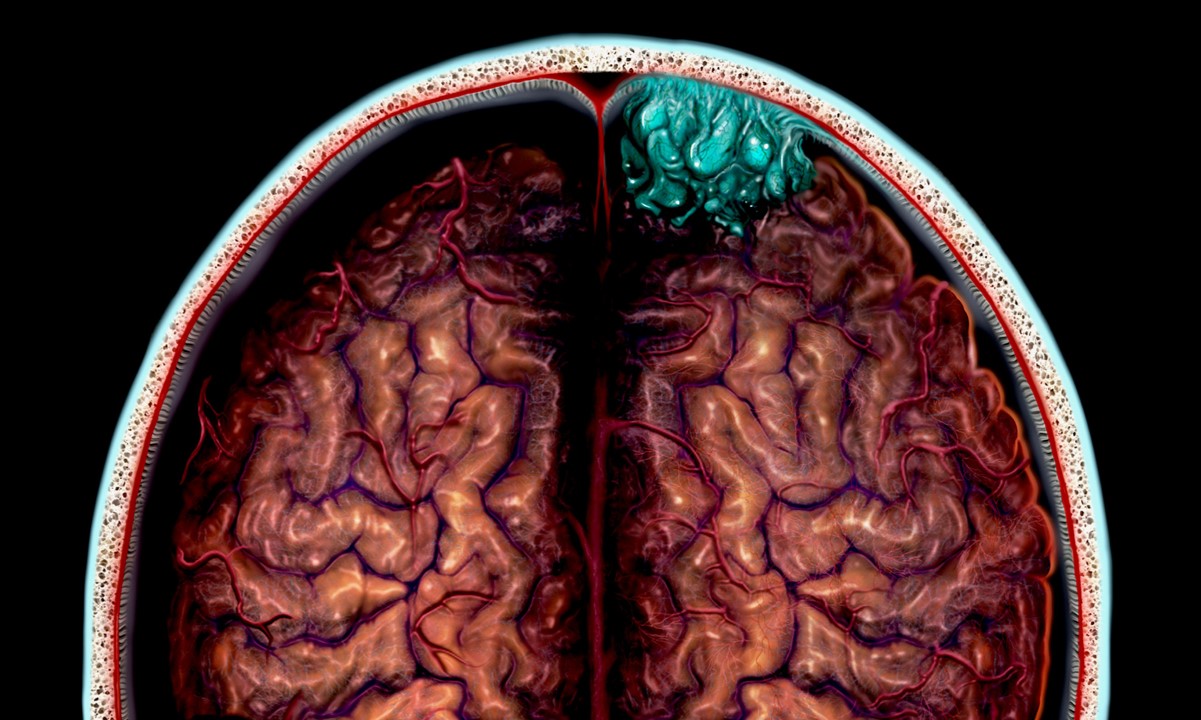
Tumor immunology is a field that explores how the immune system interacts with cancer cells. Understanding tumor immunology can help develop better treatments and improve patient outcomes. The immune system has the ability to recognize and destroy cancer cells, but tumors often find ways to evade detection. Researchers study tumor immunology to find ways to boost the immune response against cancer. This involves looking at how immune cells, like T-cells and natural killer cells, can be activated to fight tumors. Advances in tumor immunology have led to new therapies, such as immune checkpoint inhibitors and CAR-T cell therapy. These treatments have shown promise in treating various types of cancer.
Understanding Tumor Immunology
Tumor immunology is a fascinating field that explores how the immune system interacts with cancer cells. Here are some intriguing facts about this complex relationship.
-
Tumor immunology studies how the immune system detects and fights cancer cells. The immune system can recognize abnormal cells and attempt to eliminate them before they grow into tumors.
-
Cancer cells can evade the immune system. Some cancer cells develop mechanisms to hide from immune surveillance, allowing them to grow unchecked.
-
Immunotherapy is a treatment that boosts the immune system to fight cancer. This approach has shown promise in treating various types of cancer, including melanoma and lung cancer.
-
Checkpoint inhibitors are a type of immunotherapy. These drugs block proteins that prevent the immune system from attacking cancer cells, helping the body to fight the disease more effectively.
The Role of T Cells
T cells play a crucial role in the immune response to cancer. They can directly kill cancer cells or help other immune cells to do so.
-
Cytotoxic T cells can directly kill cancer cells. These cells recognize and destroy cells that display abnormal proteins on their surface.
-
Helper T cells support other immune cells. They release signaling molecules called cytokines that enhance the activity of cytotoxic T cells and other immune cells.
-
Regulatory T cells can suppress the immune response. These cells help to prevent autoimmunity but can also inhibit the immune response against cancer.
-
CAR T-cell therapy is a type of immunotherapy. This treatment involves modifying a patient's T cells to better recognize and attack cancer cells.
Tumor Microenvironment
The tumor microenvironment includes the surrounding cells, blood vessels, and molecules that support tumor growth. It plays a significant role in cancer progression and response to treatment.
-
The tumor microenvironment can suppress the immune response. Tumors can create a local environment that inhibits immune cell activity, allowing them to grow and spread.
-
Cancer-associated fibroblasts support tumor growth. These cells produce molecules that promote cancer cell survival and proliferation.
-
Tumor-associated macrophages can either support or inhibit cancer. Depending on their activation state, these immune cells can either help to destroy cancer cells or promote tumor growth.
-
Hypoxia in the tumor microenvironment can affect immune cell function. Low oxygen levels within tumors can impair the ability of immune cells to attack cancer cells.
Advances in Tumor Immunology
Research in tumor immunology is rapidly advancing, leading to new treatments and a better understanding of how the immune system interacts with cancer.
-
Neoantigens are new targets for cancer immunotherapy. These are abnormal proteins produced by cancer cells that can be recognized by the immune system.
-
Cancer vaccines are being developed to prevent and treat cancer. These vaccines aim to stimulate the immune system to recognize and attack cancer cells.
-
Combination therapies are showing promise. Combining immunotherapy with other treatments, such as chemotherapy or radiation, can enhance the overall effectiveness.
-
Biomarkers can predict response to immunotherapy. Identifying specific markers in patients can help to determine who will benefit most from these treatments.
Challenges in Tumor Immunology
Despite the progress, there are still many challenges in the field of tumor immunology that need to be addressed.
-
Tumor heterogeneity complicates treatment. Cancer cells within the same tumor can be very different from each other, making it difficult to target them all effectively.
-
Immune-related side effects can occur with immunotherapy. These treatments can sometimes cause the immune system to attack healthy tissues, leading to side effects.
-
Resistance to immunotherapy can develop. Some tumors can adapt and become resistant to immunotherapy, reducing its effectiveness.
-
Identifying the right patients for immunotherapy is challenging. Not all patients respond to these treatments, and finding the right candidates is crucial for success.
The Future of Tumor Immunology
The future of tumor immunology holds great promise, with ongoing research and new technologies paving the way for more effective treatments.
-
Personalized immunotherapy is on the horizon. Tailoring treatments to the individual patient's tumor and immune system could improve outcomes.
-
New immune checkpoints are being discovered. Identifying additional proteins that regulate the immune response could lead to new therapeutic targets.
-
Advances in gene editing are enhancing immunotherapy. Techniques like CRISPR are being used to modify immune cells for better cancer-fighting capabilities.
-
Artificial intelligence is aiding in cancer research. AI can help to analyze complex data and identify new patterns and targets for treatment.
Tumor Immunology in Different Cancers
Different types of cancer interact with the immune system in unique ways, leading to varied responses to immunotherapy.
-
Melanoma is highly responsive to immunotherapy. This type of skin cancer often responds well to treatments that boost the immune system.
-
Lung cancer has shown mixed responses to immunotherapy. Some patients benefit greatly, while others do not respond as well.
-
Breast cancer presents unique challenges for immunotherapy. The tumor microenvironment in breast cancer can be particularly suppressive to the immune response.
-
Colorectal cancer has shown promise with certain immunotherapies. Treatments targeting specific genetic mutations in these tumors have been effective in some cases.
Tumor Immunology and Metastasis
Metastasis, the spread of cancer to other parts of the body, is a major challenge in cancer treatment. Tumor immunology plays a role in understanding and combating this process.
-
The immune system can sometimes prevent metastasis. Immune cells can attack and destroy cancer cells that have spread to other parts of the body.
-
Metastatic tumors can be more resistant to immunotherapy. These tumors often have additional mechanisms to evade the immune system.
-
Research is ongoing to understand how the immune system interacts with metastatic cancer. This knowledge could lead to new treatments that target metastatic disease.
The Impact of Lifestyle on Tumor Immunology
Lifestyle factors can influence the immune system and its ability to fight cancer. Understanding these factors can help in developing better prevention and treatment strategies.
-
Diet can affect the immune response to cancer. Certain foods and nutrients can enhance or suppress immune function.
-
Exercise has been shown to boost the immune system. Regular physical activity can improve immune surveillance and reduce the risk of cancer.
-
Stress can negatively impact the immune system. Chronic stress can weaken the immune response, making it harder for the body to fight cancer.
Tumor Immunology: Key Takeaways
Understanding tumor immunology can help in the fight against cancer. The immune system plays a crucial role in identifying and attacking cancer cells. Immunotherapy has emerged as a promising treatment, harnessing the body's natural defenses to target tumors. Checkpoint inhibitors and CAR-T cell therapy are two groundbreaking approaches showing significant results.
Research continues to uncover new insights into how tumors evade the immune system. Scientists are developing more effective strategies to boost immune responses. Early detection and personalized treatments are becoming more achievable, offering hope to many patients.
Staying informed about these advancements can empower individuals and families facing cancer. Knowledge is a powerful tool in the battle against this disease. By supporting ongoing research and spreading awareness, everyone can contribute to the progress being made in tumor immunology.
Was this page helpful?
Our commitment to delivering trustworthy and engaging content is at the heart of what we do. Each fact on our site is contributed by real users like you, bringing a wealth of diverse insights and information. To ensure the highest standards of accuracy and reliability, our dedicated editors meticulously review each submission. This process guarantees that the facts we share are not only fascinating but also credible. Trust in our commitment to quality and authenticity as you explore and learn with us.


